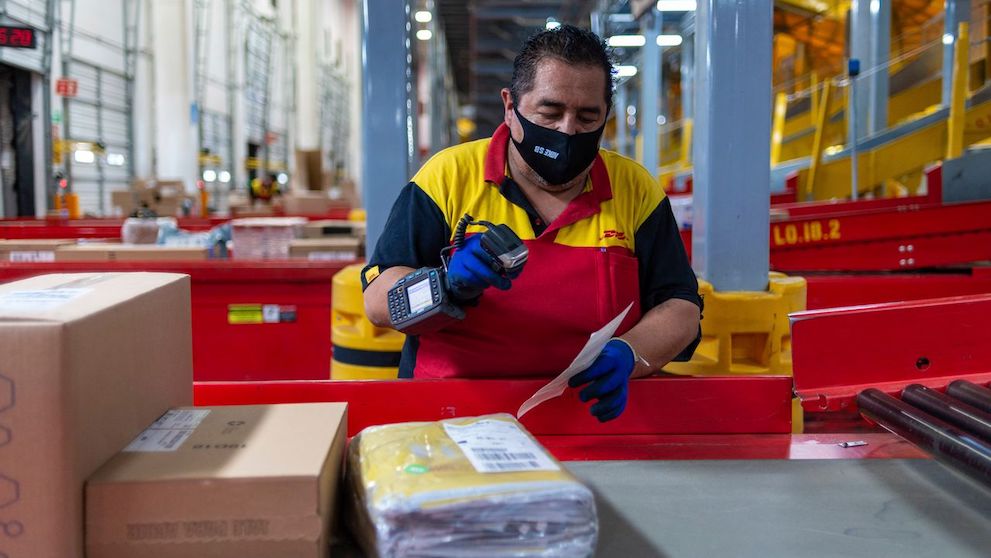India is the sixth largest economy in the world, and is prime with business opportunities for overseas SMEs. With a reliable shipping partner, Australian businesses can tap into a share of this market.
India is one of the key drivers of the global economy. Thanks to a combination of factors, it is a promising export market for Australian e-commerce businesses. India has a large growing population, with over half of its people born after 1980. The size of India’s young demographic makes for an interesting and compelling market for future e-commerce consumer trendspotting. Australian e-commerce businesses should start now by offering customers the option to ship from Australia to India. Here, we’ve put together a shipping guide for businesses to reference easily.
Popular products to ship to India from Australia
Wondering what does Australia export to India to better your chances of sustained e-commerce sales in your international target market?
Popular products in the Indian online retail market to consider selling are:
Clothing and apparel
Fashion accessories
Beauty products
Home decor items
Toys and games
Books
Prohibited goods include:
Antiquities
Animal original products and meat
Wildlife products
Counterfeit and pirated goods
Narcotic and psychotropic substances
Chemical weapons
Aero models
Pornographic and obscene materials
Maps and literature where Indian external boundaries are shown incorrectly
Restricted goods include:
Firearms and ammunition
Live bird and animals, including pets
Plants and their produce e.g. seeds, fruits
Endangered species of animals and plants, both alive or dead
Gold and silver, other than ornaments
Vintage products, replicas of antiques or weapons
Medicines and drugs
Sand and soil
Using the list of prohibited and restricted items for import in India as a guide ensures your e-commerce business focuses on products that can actually cross the border. By familiarising yourself with the customs regulations before shipping, you can be sure that your shipment arrives smoothly and without any delays.
2. India customs tax
India customs duty is a tax charged on goods imported into the country. The customs duty in India is levied at the time of import by the Indian Customs authorities. There are two types of customs duty in India, basic customs duty and additional customs duty.
Basic customs duty is levied on all imported goods except those which are exempted. Additional customs duty is levied on a few specified goods. Your shipped goods may also incur an integrated goods and service tax (IGST). When shipping to India, you’ll need to work out how much the total customs duty is based on the classification of the goods. Gifts and gold are common shipments, with basic customs duty and IGST charges on gifts and on gold at 7.5%. Customs duty rates depend upon the type of product, its origin and its classification. Tariffs and import duties are subject to constant change, so it is best to keep up to date on the latest regulatory compliance in India.
3. Shipping documentation for export
When shipping goods to India, being aware of the required shipping documentation is helpful in facilitating a seamless experience.
Shipping documentation includes:
Airway bill: This contains important information about your shipment, such as the shipper’s and receiver’s address and details, shipment details, and payer account number.
Commercial invoice: The value of the goods being shipped must be listed, as well as any applicable taxes and insurance
Signed packing list: It should include the details of the content of each package if the shipment has more than one box.
Shipping manifest: It contains the name and address of the consignee, and the port of destination.
Purchase order: This entails the proof of payments for shipments that have purchases by private individuals, such as for e-commerce orders.
Signed and stamped Non-objection Form (N-Form): This is required if the receiver is located outside of Mumbai
Goods like cosmetics or electronics may require additional declaration forms.
Failure to provide accurate and complete shipping documentation can result in customs clearance delay, as well as additional fees. As such, it is important to be familiar with the requirements before shipping goods to India.
Fast and reliable shipping from Australia to India with DHL Express
India is poised to be a lucrative and growing market for Australian e-commerce businesses. As a leading logistics carrier, DHL Express facilitates business activity between India and Australia with seamless shipping. We understand foreign trade relations in India and can help assure that this crucial aspect of your shipping process is taken care of with close attention to the details.
Take your business to greater heights by venturing into the India market with DHL Express. Register for an account today to get started.
Disclaimer
Any regulatory information contained herein is for informational purposes only and DHL assumes no responsibility for the accuracy of the information. DHL does not provide specific regulatory or legal advice to the public and you are encouraged to seek your own legal or compliance counsel.




























